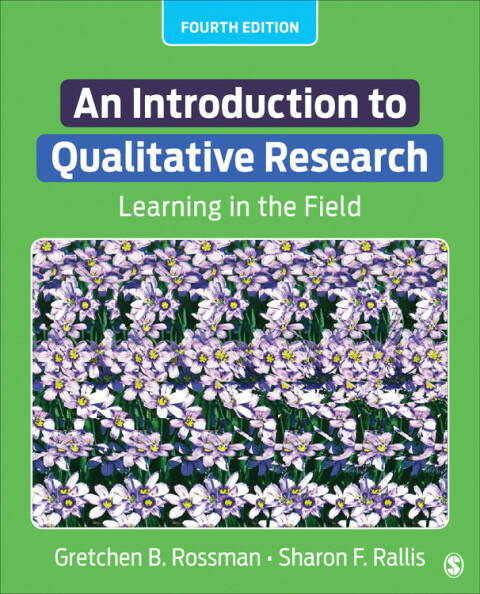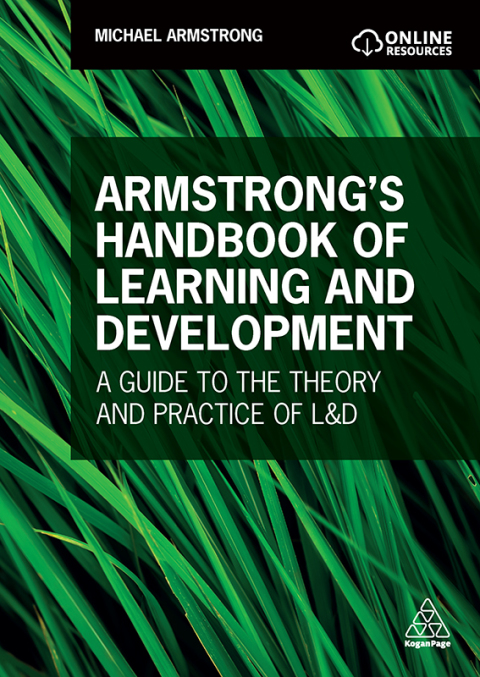Description
Efnisyfirlit
- List of Tables and Figures
- Foreword by Michael Quinn Patton
- Preface
- Acknowledgments
- About the Authors
- 1| Qualitative Research as Learning
- Doing Qualitative Research: Tales of Three Characters
- Defining Qualitative Research
- Common Characteristics
- Typical Purposes and Overall Approaches
- The Characters’ Choices
- Descriptive Studies
- Evaluation or Policy Studies
- Action Research
- Ways of Using Research
- Instrumental Use
- Enlightenment Use
- Symbolic Use
- Transformative Use
- Dispositions and Skills
- Overview of the Book
- Activities for Your Community of Practice
- Further Readings
- 2| The Researcher as Learner
- What Is Learning?
- The Reflexivity of Qualitative Research
- Paradigms
- Interpretivist and Objectivist
- The Nature of Reality
- The Nature of Knowledge and Knowing
- The Nature of Human Agency
- Methodology
- Improvement or Radical Change
- Four Paradigms
- Positivism
- Descriptive Interpretivism
- Critical Humanism
- Critical Realism
- Perspective in Practice
- The Self at Work: Reflexivity
- Establishing Perspective
- Dispositions and Skills
- Activities for Your Community of Practice
- Notes
- Further Readings
- 3| The Researcher as Competent and Ethical
- Why Does Trustworthiness Matter?
- What Makes a Trustworthy Study?
- Systematic Practice
- What Is the Truth Value of This Work?
- What Can the Researcher Do?
- How Rigorously Was the Study Conducted?
- What Can the Researcher Do?
- How Is the Study Useful for Other Situations?
- What Can the Researcher Do?
- General Strategies for Ensuring Credibility and Rigor
- Our Characters’ Strategies
- Beyond Systematicity
- Ethical Practice
- Ethical Reasoning
- Procedural Ethics: Institutional Review Boards
- Challenges in Ethical Practice
- Privacy and Confidentiality
- Deception and Consent
- Trust and Betrayal
- Coping With Micropolitics
- What Can the Researcher Do?
- Our Characters’ Dilemmas and Challenges
- Dispositions and Skills
- Activities for Your Community of Practice
- Notes
- Further Readings
- 4| Major Qualitative Research Genres
- Choosing the Locus of Interest
- Ethnographic Genres
- Internet Ethnographies
- Autoethnographies
- Compressed Ethnographies
- Critical Ethnographies
- Our Characters’ Choices
- Phenomenological Genres
- Our Characters’ Choices
- Sociolinguistic Genres
- Our Characters’ Choices
- Case Studies
- Our Characters’ Choices
- Dispositions and Skills
- Activities for Your Community of Practice
- Further Readings
- 5| Conceptualizing and Planning the Research
- Practical Considerations
- Do-Ability
- Want-to-Do-Ability
- Should-Do-Ability
- What Is a Research Proposal?
- Conceptual Framework
- Use of the Literature
- Introduction
- The Topic
- Statement of the Research Problem or Issue
- Our Characters’ Choices
- Purpose
- Our Characters’ Choices
- Significance
- Overview Questions and Subquestions
- Our Characters’ Choices
- Limitations
- Design and Methods
- Overall Genre and Rationale
- Site or Population Selection and Sampling Strategies
- Data-Gathering Procedures
- Data Management and Preliminary Analysis Procedures
- Dispositions and Skills
- Activities for Your Community of Practice
- Further Readings
- 6| Entering the Field
- Preparation
- Intended Involvement
- Degree of Involvement
- Portrayal of Involvement
- Approach and Negotiations
- Time
- Introduction and Invitation
- Obtaining Permission
- Expectations and Relationships
- Reciprocity
- Organizational Gatekeepers
- Dispositions and Skills
- Activities for Your Community of Practice
- Further Readings
- 7| Gathering Data in the Field
- Decisions About Gathering Data
- Depth or Breadth
- Prefigured or Open Ended
- Ebb and Flow
- Systematic Inquiry
- Data That Inform the Research Questions
- Data About the Process and Yourself
- Generic In-Depth Interviewing
- Types of Interviews
- Strengths and Limitations of Interviewing
- Social Group Identities
- Follow-Up Questions
- Specialized In-Depth Interviewing
- Interviewing Within Ethnographic Genres
- Interviewing Within Phenomenological Genres
- Narrative Inquiry Interviewing
- Interviewing and Sociolinguistic Genres
- Special Considerations
- Interviewing Elites or Experts
- Focus Group Interviewing
- Interviewing Children
- Interviewing Using Computer Applications and the Internet
- Digital Storytelling
- Transcribing and Translating
- Observing People, Actions, and Events
- Taking Field Notes
- Making Raw Field Notes Usable
- Studying Material Culture
- Dispositions and Skills
- Activities for Your Community of Practice
- Further Readings
- 8| Issues That Arise in the Field
- How Do I Prepare to Gather Data?
- Our Characters
- How Can I Get Comfortable in the Field?
- What Are the Data?
- How Do I Turn Sights, Sounds, and Objects Into Data?
- Two Languages: Which Do I Use?
- How Can I Change My Research Plan?
- What Do I Reflect On?
- How Do I Leave the Field?
- Dispositions and Skills
- Activities for Your Community of Practice
- Further Readings
- 9| Our Characters’ Data
- Anthony’s Data
- Field Notes 1
- 10/10. 12:15–1:00 p.m. Community Arts Center Office
- Field Notes 2
- 11/3. 4:00–6:15 p.m. Watercolor Class
- Interview 1
- 11/8
- Interview 2
- 11/15
- Marla’s Data
- Interview 1
- 10/22
- Interview 2
- 10/23
- Field Notes 1
- 10/10. 6:46 p.m. Clinic. Observation by Julia
- Field Notes 2
- 11/3. Clinic Observation. Early Evening (5:30 p.m.). Observation by Aida
- Field Notes 3
- 11/9. 9:00 p.m. Clinic Observation
- Ruth’s Data
- Field Notes 1
- 9/24. Culverton After School Center
- Field Notes 2
- 10/3. Culverton After School Center
- Interview 1
- 10/5. Second Interview With Mark
- Interview 2
- 10/9. First Interview With Katrine
- Activities for Your Community of Practice
- 10| Analyzing and Interpreting Data
- Analysis Happens
- Analysis Is Ongoing
- Categorical or Holistic Analysis
- Thick Description
- Quantifying Qualitative Data
- Analysis Related to Qualitative Genres
- Generic Analysis
- Organizing the Data
- Our Characters
- Familiarizing Yourself With the Data
- Identifying Categories and Generating Themes
- Coding
- Interpretation
- Searching for Alternative Understandings
- Writing the Report
- Writing In-Process Analytic Memos
- Strategies for Analyzing Interview Data
- Analyzing Ethnographic Interview Data
- Analyzing Phenomenological Interview Data
- Analyzing Narrative Interview Data
- Analyzing Voice-Centered Interview Data
- Analyzing Sociolinguistic Data
- Strategies for Analyzing Field Notes From Observations
- Strategies for Analyzing Material Culture
- Dispositions and Skills
- Activities for Your Community of Practice
- Further Readings
- 11| Our Characters’ Analyses
- Anthony’s Analysis
- Analytic Memo: What Participation Means
- Attendance
- A Culture of Inclusion
- Ruth’s Analysis
- On Agency
- Sense of Efficacy
- Acceptance
- Next Steps
- Marla’s Analysis
- Memo 1: Collaborative Analysis: The Process and Some Preliminary Insights
- Memo 2: Taking Action
- Dispositions and Skills
- Activities for Your Community of Practice
- 12| Presenting the Learnings
- Presentation
- Audience and Purpose
- Possible Formats
- Voice
- An Example
- Thick Description: Starr
- Analysis: “It’s Not Easy Being a Member of the Model Minority”
- Play: Scene Based on a Doctoral Dissertation With Six Asian American Girls
- Characters
- Scene I
- Organizing the Report
- Chronology
- Life History
- Themes
- Composite
- Critical Events
- Portraits
- Using the Dispositions and Skills to Generate Useful Knowledge
- Activities for Your Community of Practice
- Notes
- Further Readings
- References
- Index






Reviews
There are no reviews yet.